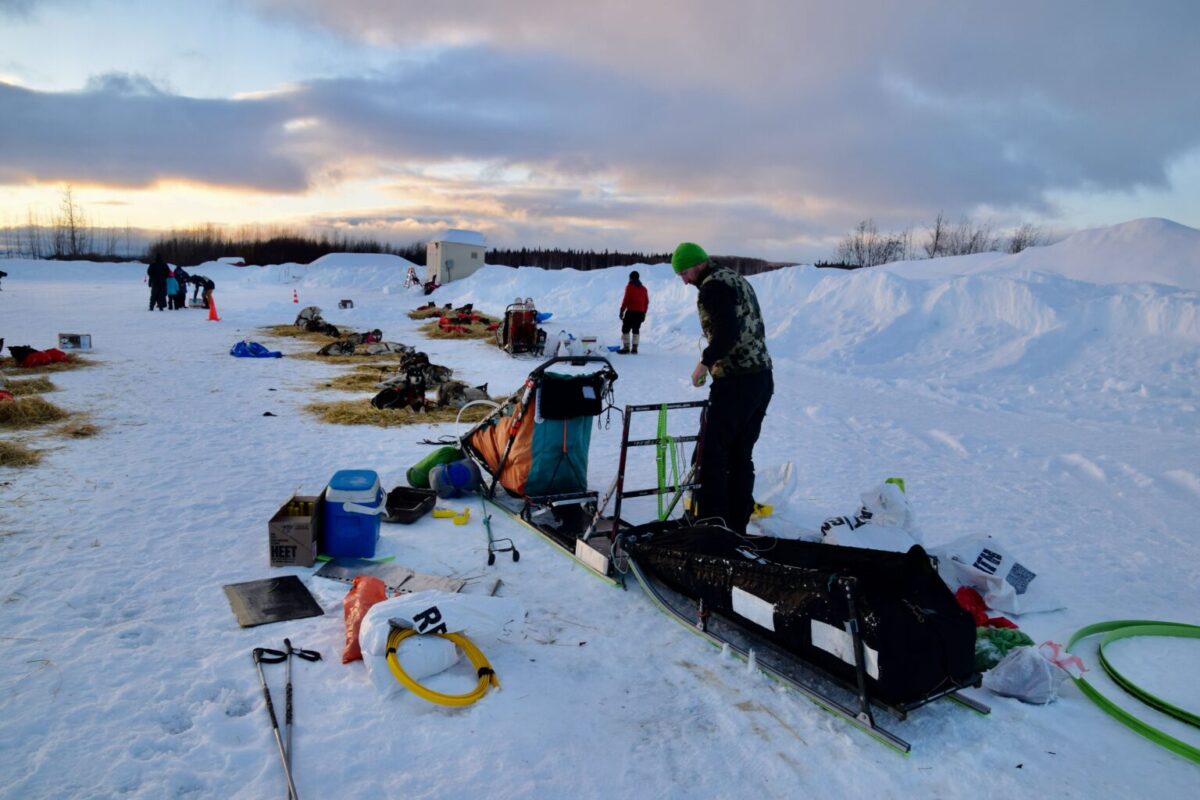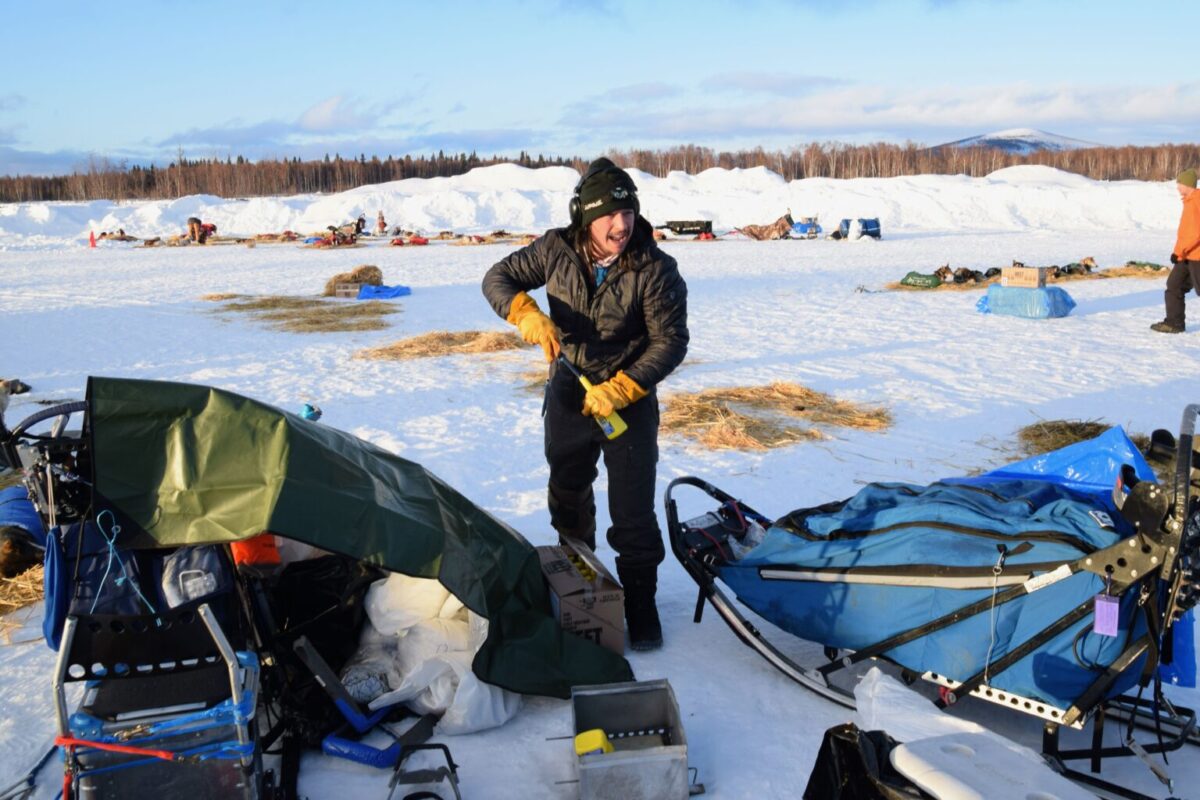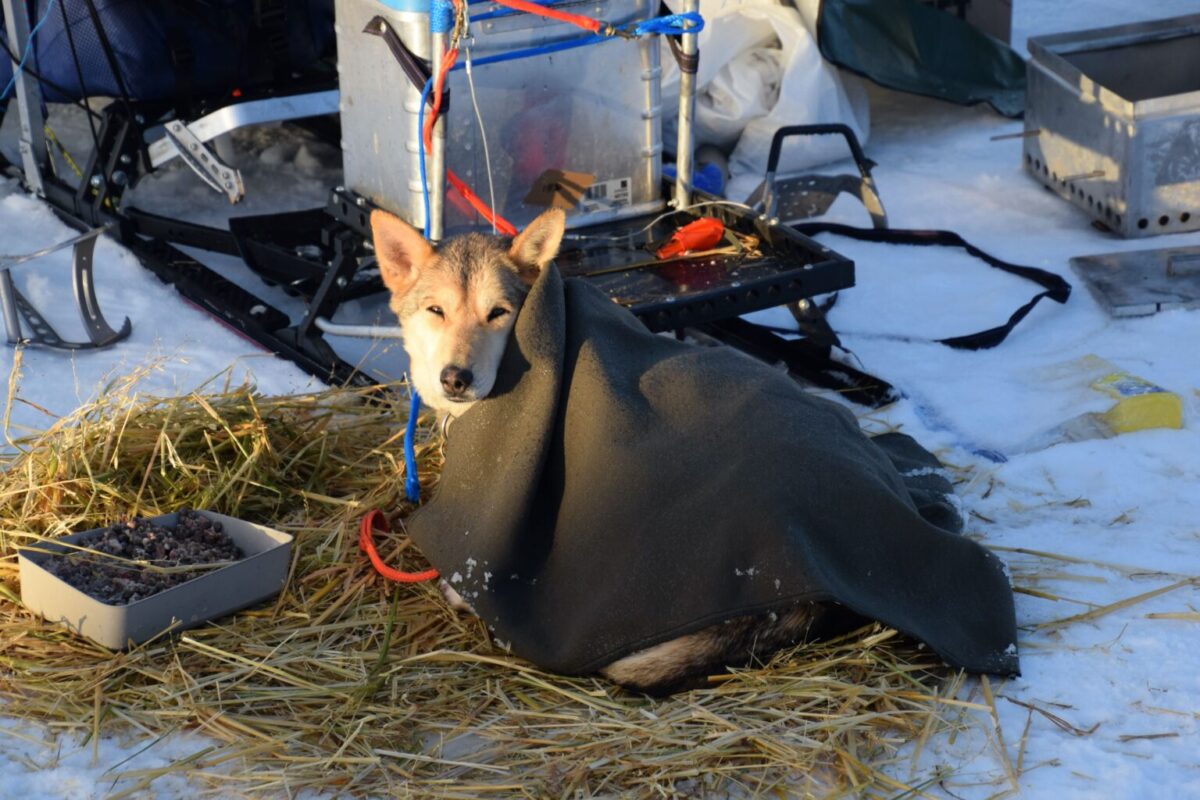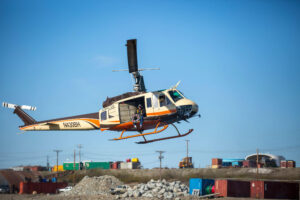This article by Ben Matheson was originally published by Alaska Public Media. It was republished with permission through a partnership with KNOM.
Iditarod musher Jason Mackey tore apart a straw bale Wednesday afternoon to use as dry bedding for his resting dog team here after rain soaked the area.
“Nice dry bed here,” he said after loading more straw onto the piles beneath each of his dogs.
And then it’s onto an ambitious feeding schedule.
“About 15 pounds of snacks when they first got here, and then let them sit for an hour and a half, and then they ate a full cooler for 11 dogs,” said Mackey. “Which is a lot.”
Mackey’s team was among seven who had settled in for their 24-hour breaks at McGrath, about 300 miles into the Iditarod. All mushers must take a daylong layover at some point during the race. McGrath, a community of about 300, provides a convenient spot for the long rest. It’s less crowded than the popular Takotna checkpoint.
As the Iditarod transitions from big mountains and technical terrain into the heart of Alaska’s Interior, mushers are watching their team come into race form and working out the troubles they encountered in the first three days of racing. The 24-hour stop is a time for mushers and their sled dogs to maximize calories and quality sleep after a taxing three days of running over the Alaska Range and across bumpy trails.
Ten of Mackey’s 11 dogs in McGrath are running their first Iditarod and getting into what Mackey hopes is the classic sled dog race routine.
“Everything is routine. You want: run, food, run, food, run, food, rest, all the steps that go with that,” he said.
And then there is the physiological transformation that Kelly Maixner has been watching very closely as his team completed the first 300 miles of trail.
“They just start eating like crazy and going through massive amounts of calories,” he said.

All of those calories are transformed into energy for the miles ahead. Maixner is running dogs from five-time champion Dallas Seavey and targeting a top finishing spot.
Thirty miles down the trail a big group of mushers chose Takotna for their 24-hour stop. The quiet community of just 50 people on the banks of its namesake river is known for its hospitality.
In the dog yard, Ramey Smyth is handing out meat snacks to his dogs, who are bedded down in the straw. He said there are plenty of reasons to stay in Takotna.
“The vibe is really good here, people really like to see the mushers and there’s a lot of facilities, you’ve got places to get water,” he said. “They even give you hamburgers and stuff like that.“
Back in McGrath, Rookie Bailey Vitello chatted with everyone in the checkpoint with energy that may be explained by the quick nap that has doubled his sleep total. He arrived to begin his 24-hour break with next to no sleep in his system.
“The reason I only have three hours of sleep is because I’ve been watching these guys like a hawk the whole time,” said Vitello.

He’s replacing his sled here after he broke a runner on the choppy moguls on the run into Nikolai and mushed 80 miles while balancing on a single runner.
When the sun went down, the temperature was dropping fast, making for improved dog mushing weather.
After 24 hours of strategic feedings and rest Kelly Maixner’s team left the checkpoint for the run to Takotna and toward the halfway mark of Iditarod, the ghost town checkpoint.

Image at top: Kelly Maixner’s team rests on their 24-hour break at the checkpoint in McGrath on March 8, 2023. (Ben Matheson/Alaska Public Media)





